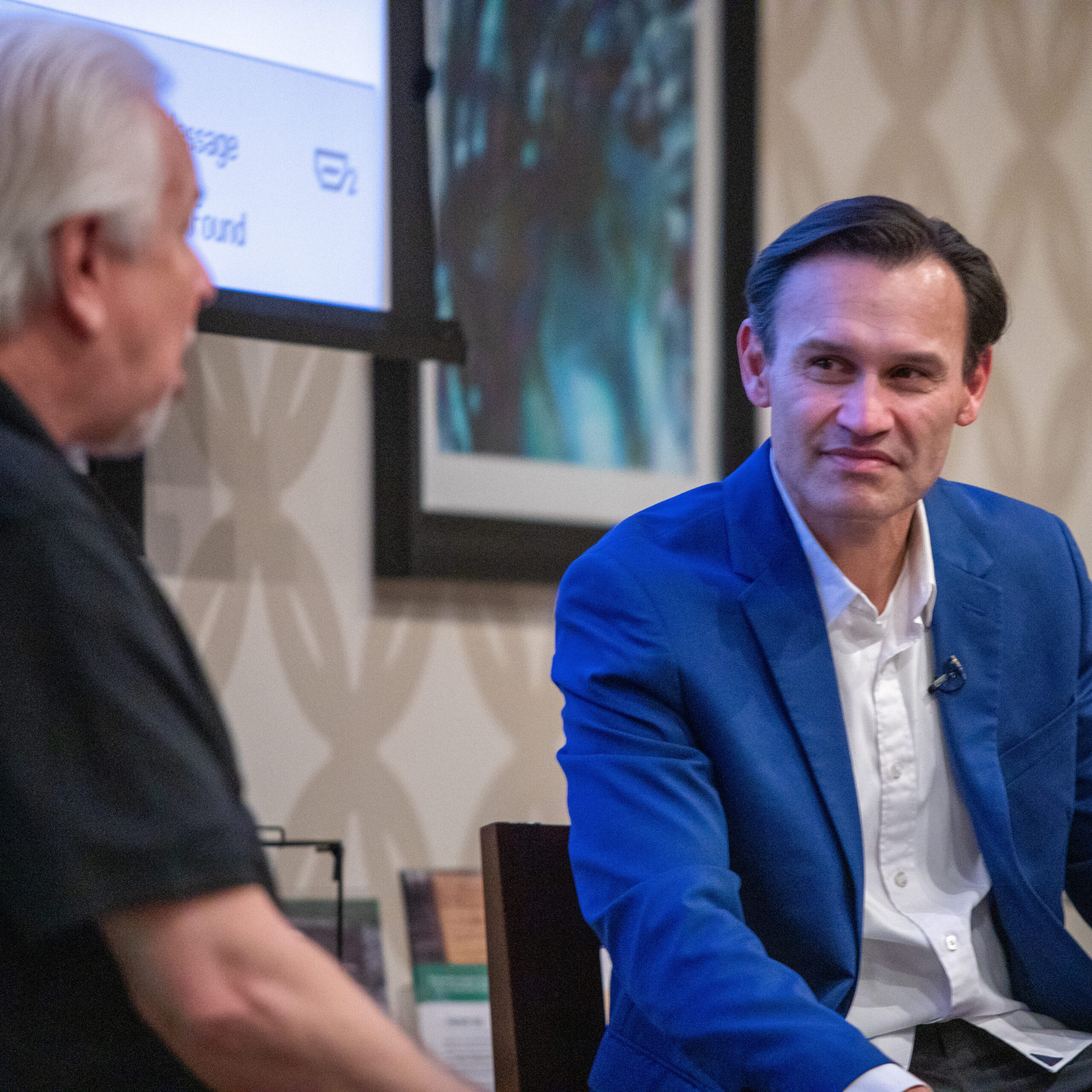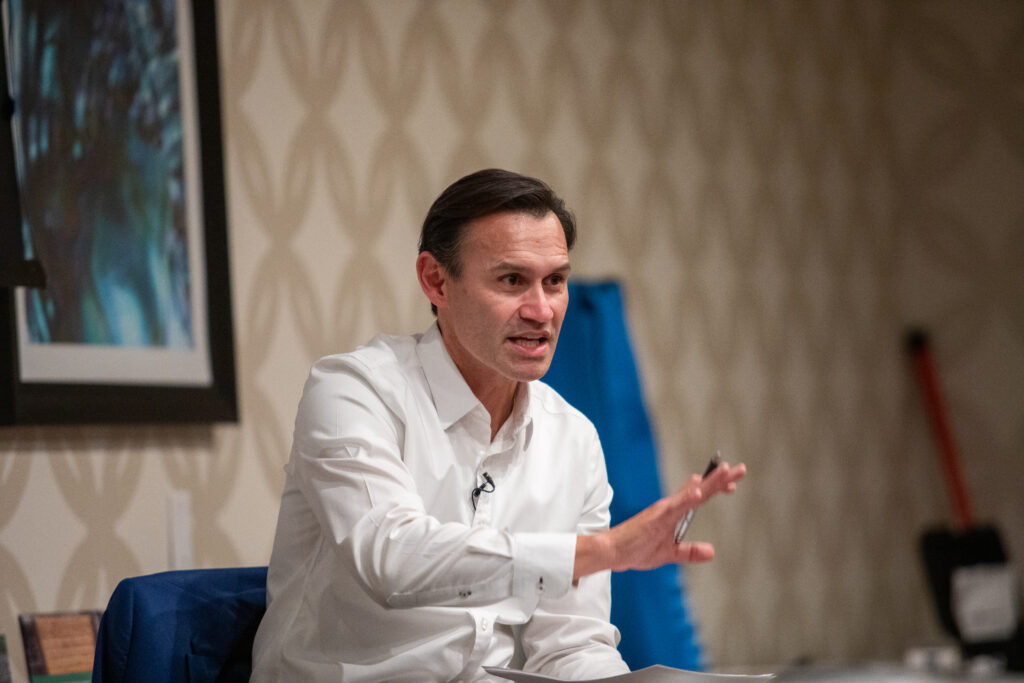Have you ever been in a room full of people, all eyes on you, waiting for guidance, and thought, “How did I end up here?” Maybe you’ve taken on a leadership role only to find yourself juggling more responsibilities and challenges than you’d ever imagined. Oh, I’ve been there too.
The first time I stepped into a leadership role in business, it felt like I was standing on a stage I hadn’t rehearsed for. I leaned on what worked for me in sports, I was a quarterback back in the day. I thought motivating and directing a team in business would be just like leading on the field. Boy, was I wrong. Leading a sales team or managing a marketing group is an entirely different game. Over the past decade, I’ve learned some hard but invaluable lessons about what real leadership takes. Here’s what I wish I could’ve told my younger self stepping into that first leadership role.
Listen More, Talk Less

Early on, I mistakenly believed that a leader’s role was to always call the shots and be the loudest voice in the room. Turns out, that style doesn’t build winning teams in business (or anywhere, honestly). One of the most important lessons I learned was to just stop talking and start listening.
When you really listen to your team, you uncover their struggles, aspirations, and even the things they might not feel comfortable saying outright. From there, you can jump in and truly inspire and support them where it matters most. Genuine listening fosters a culture of trust, and trust? That’s the bedrock of effective leadership.
Remember this golden rule of leadership: it’s not about you. A great leader plays for the “we,” not the “me.” If you’re trying to be the star of the show, you’ll burn out fast. But focusing on collaboration creates magic. Teams that trust their leader and work together don’t just accomplish goals; they exceed them.
Failure Is the Best Teacher (Even If It’s the Hardest One)
Failure feels awful. No one loves it, but it’s one of the greatest teachers out there. Early in my leadership career, I struggled to accept my mistakes. Yet the truth is, missteps are inevitable, no matter how carefully you plan or how much effort you pour in.
When things don’t go as planned (and they won’t), the reflex might be to assign blame. But playing the blame game solves nothing. Instead, take full accountability, even if you weren’t directly at fault. Why? Because accountability sets the tone for your team. It shows them you’re someone they can depend on, especially when the going gets tough.
Failure isn’t the end; it’s the beginning of growth. Each mistake is a chance to learn, refine, and come back better. Instead of wallowing, ask yourself and your team, “What can we learn from this?”. Then, channel that knowledge into your next move. Leaders who can pivot after failure inspire resilience in everyone around them.
Self-Awareness Is the Secret Weapon
Here’s the thing about leadership no one tells you upfront: it doesn’t matter how strong you are if you don’t know your own weaknesses. Self-awareness is everything.
Imagine being a quarterback standing on the field, completely unaware of your own blind spots. The same goes for leadership. Knowing your strengths is important, but being brutally honest with yourself about your weaknesses is vital. That’s how you grow.
Real leadership isn’t about pretending to have all the answers. It’s about saying, “I don’t know but I’m willing to learn and get better.” When your team sees you owning your flaws and making the effort to address them, they’ll respect you even more. Self-awareness is a reminder that leadership isn’t about perfection; it’s about growth.
Relationships Are the Backbone of Leadership
One of the biggest lessons I wish I knew sooner is this: no matter how talented or skilled you are, leadership lives and dies by the quality of your relationships. You can dream up the best strategy or set the most ambitious goals, but if you don’t build genuine connections with your team, clients, and partners, none of it matters.
Building trust with your team, nurturing client relationships, and fostering partnerships isn’t just a nice bonus. It’s essential. Great leaders invest in their people. They give without keeping score, support without expecting immediate returns, and genuinely care. The payoff? Relationships built on reciprocity and mutual respect lead to loyalty, collaboration, and success.
Never Stop Learning
If you think you’ve got it all figured out as a leader, here’s your wake-up call. The second you stop learning, adapting, and evolving, you’ve stopped leading.
Leadership requires a hunger for growth. Whether it’s picking up the latest leadership book, learning from mentors, or developing a new skill, curiosity is your greatest ally. Stay open to feedback, even if it stings. Seek out new perspectives. Every day offers a new opportunity to get better, not just for yourself, but for everyone you lead.
Lead by Example (They’re Watching)

Here’s a reality check for every leader out there: your team is always watching. They notice what you do far more than what you say. If you expect them to work hard, stay accountable, and collaborate, you’ve got to model those behaviors yourself.
Leadership is about walking the talk, even when it’s tough. Showing patience, remaining steady under pressure, and leading with integrity sets a powerful example. Over time, this kind of consistency builds loyalty and inspires your team to embody those same principles.
Change Is Inevitable (And That’s a Good Thing)
The only constant in leadership? Change. It can feel unsettling, but it’s the driving force behind growth. Change challenges us to adapt, reflect, and evolve. Whether you’re facing a reorganization, adopting new technologies, or navigating a volatile market, your ability to pivot and guide your team through uncertainty will define your success.
Great leaders don’t resist change; they steer it in a positive direction. They look for opportunities to innovate and get better even when it means stepping outside their comfort zones.
Final Thoughts
If I could go back and give my younger self advice about leadership, here’s what I’d say:
Leadership isn’t about having all the answers or always being the strongest voice in the room. It’s about showing up, owning your flaws, and putting your team first. You’re going to stumble, and that’s okay. What matters is that you keep learning, keep growing, and keep moving forward.
To anyone stepping into leadership for the first time, know this: where you are now isn’t your final destination. The leader you’ll become is shaped each day by your actions, your mindset, and your ability to adapt. Keep pushing, stay curious, and trust the process. The future you will thank you for it.
Keep leading boldly,
-G

